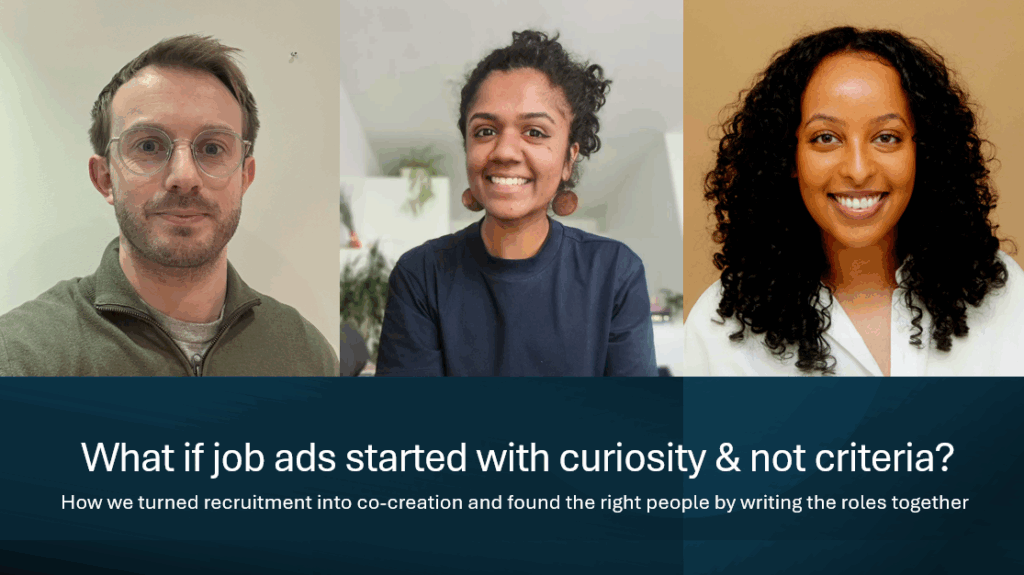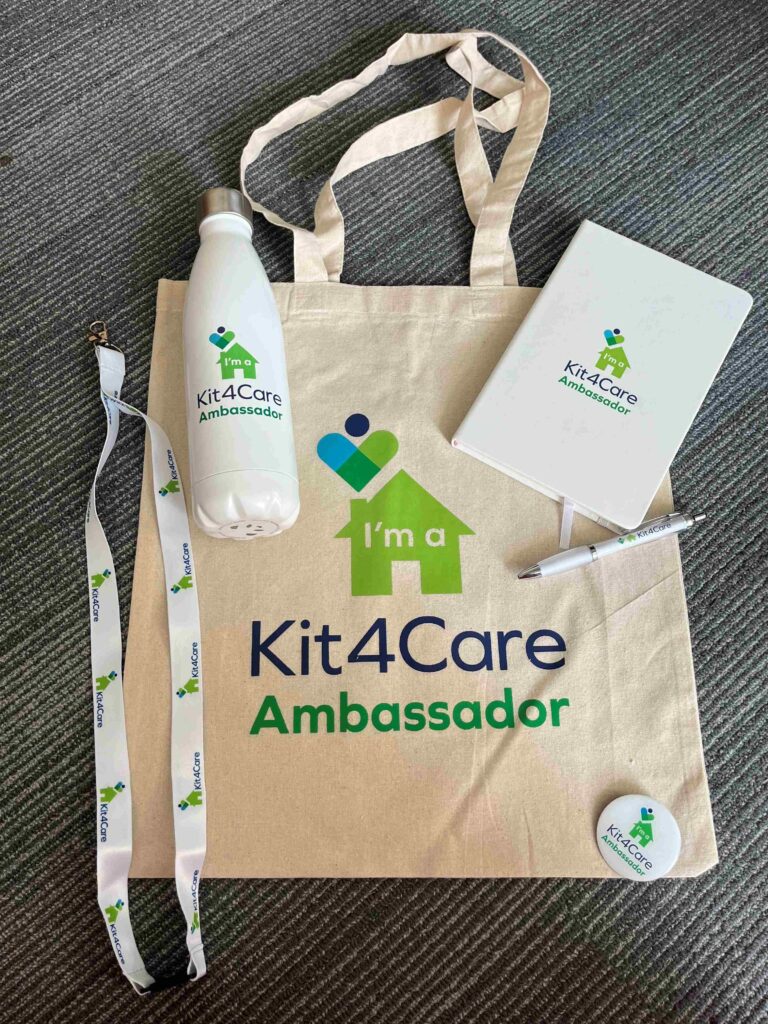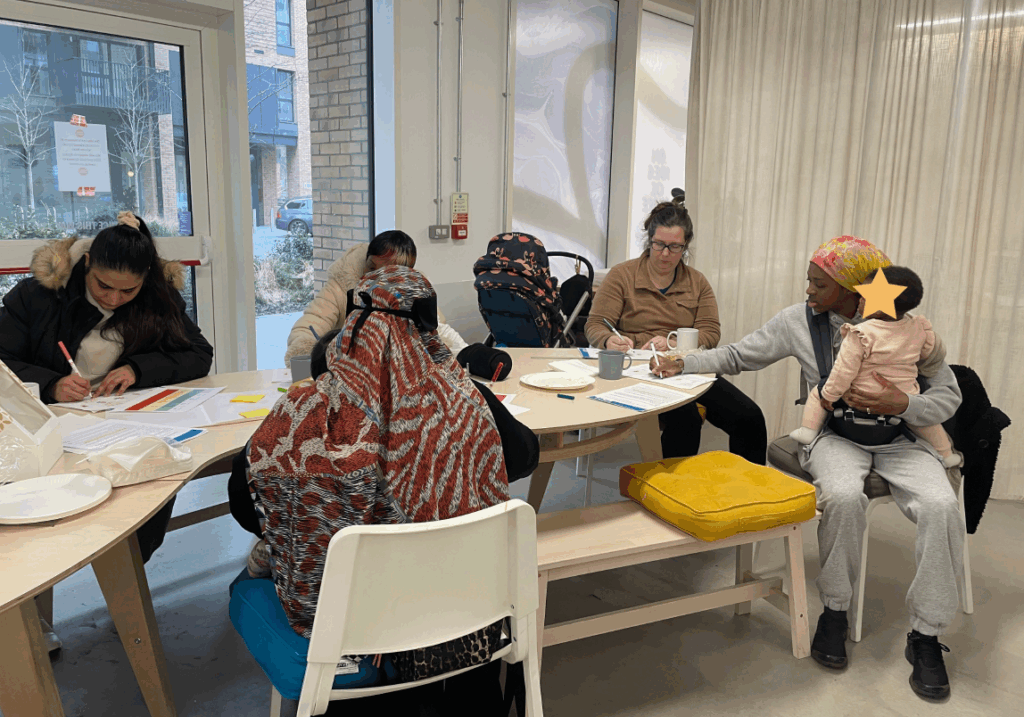Reflections and look ahead to 2024
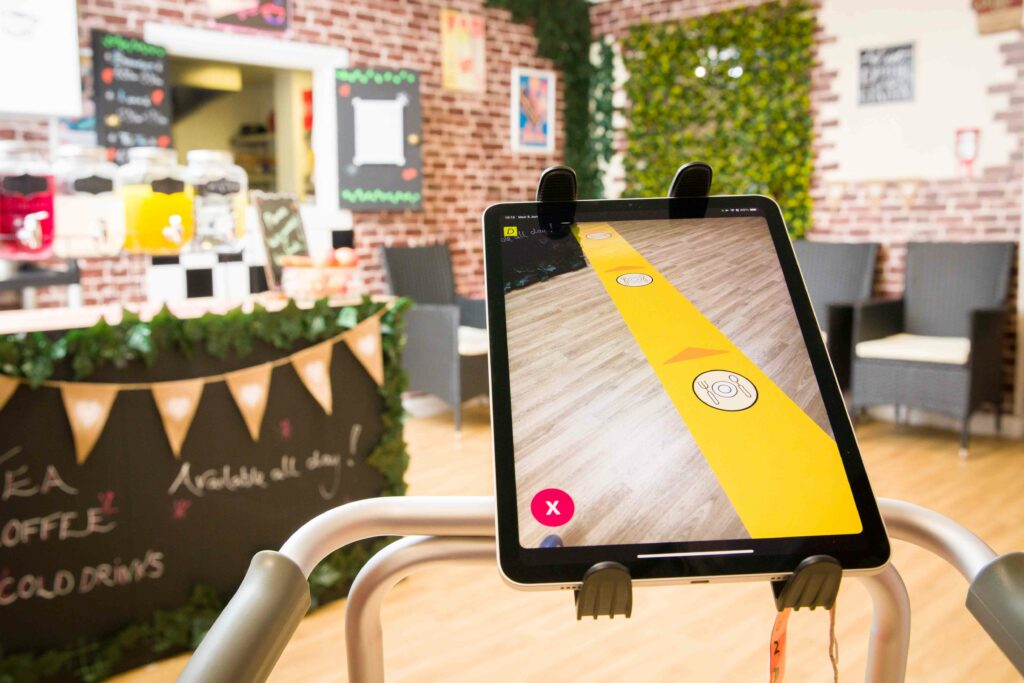
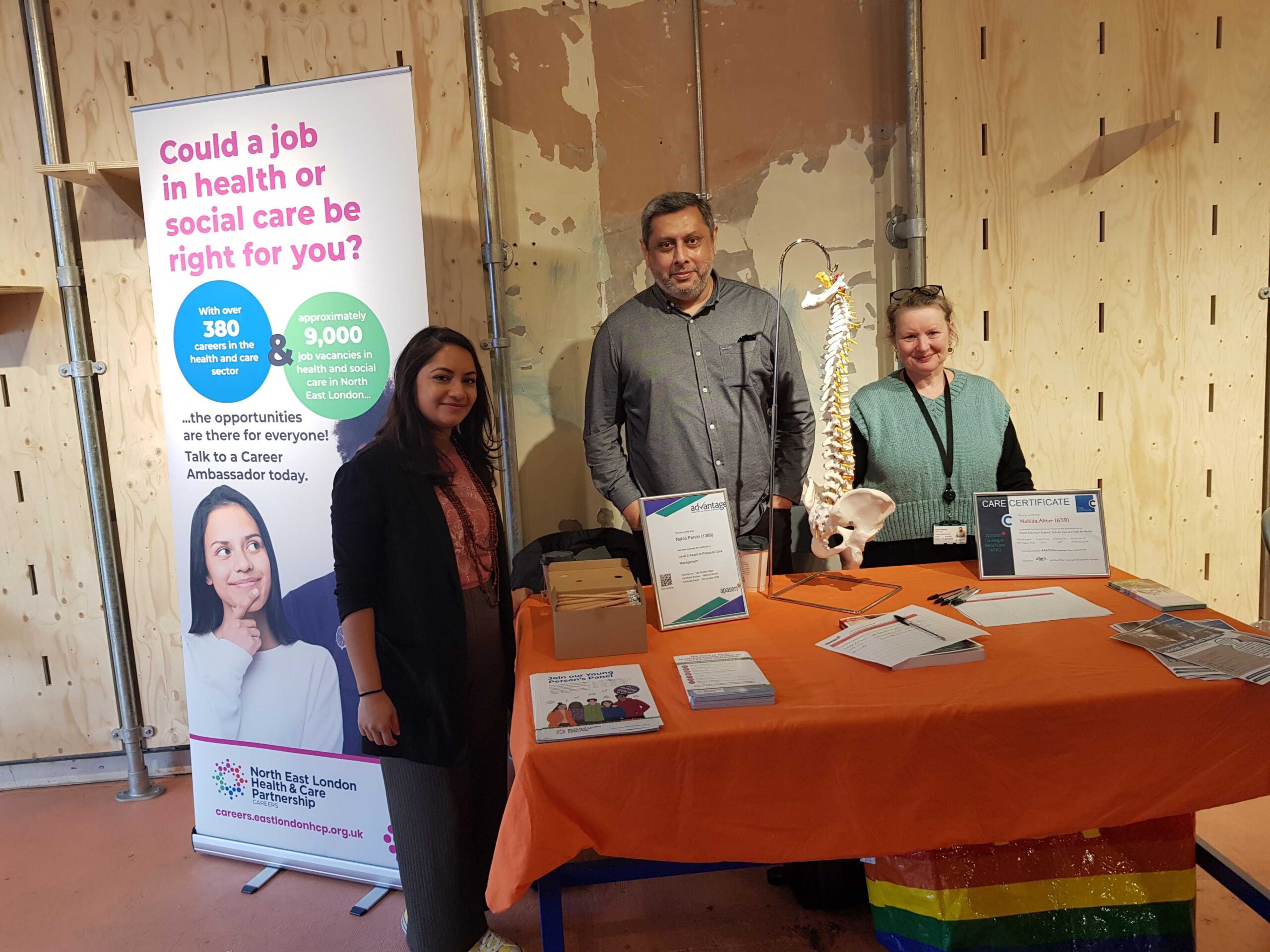

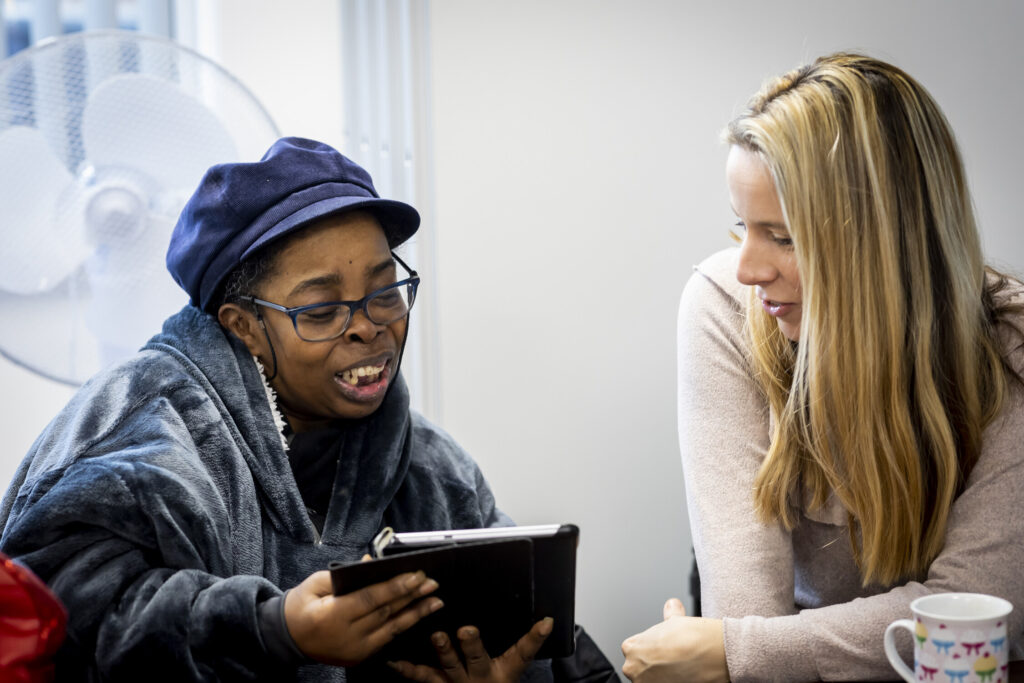
Matt Skinner’s blog reflects on his first full year as CEO & the privilege of being a CIC.
This end-of-year blog post also marks my first full year as CEO of Care City. Over the last year, I’m astonishingly proud of the Care City team and the work that they have done across health and care and in our community. I’m extremely grateful to the Care City Board for their support and for helping me feel at home in the role. I am also grateful to the wonderful partners across North East London (and increasingly beyond) for their trust in us and commitment to making health and care better for people, despite the massive challenges they have faced. I also want to say a huge thank you to our Community Board for their friendly challenge, advice, direction and involvement in our work over the last year.
One of the privileges of being a community interest company is being able to give back to the communities we work with. Last week, the Care City team created gift parcels for over 150 phenomenal carers in Barking and Dagenham. We hope this brings some cheer to an essential part of the workforce and fabric of our society that doesn’t get heard or thanked enough.
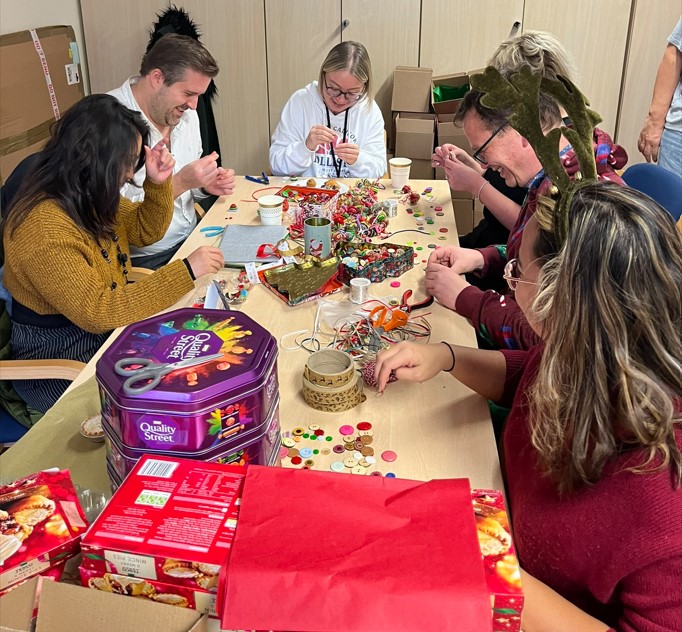
This time last year, we launched the Fuel Up campaign with local partners BD Collective and BD Giving to help support families struggling with the cost of fuel locally; several families were supported locally with fuel vouchers. This year, we’ve been working with the Cadent Foundation, co-designing with residents who have experienced fuel poverty to develop opportunities to help others. As a result, we are running a series of community information and making events with partners across health and care to provide guidance and distribute £10k of funding to help families struggling this winter.
As we count down to the end of the year, I want to reflect on 12 brilliant things the Care City team (and our family of wonderful associates) has been working on.
Helping young people in North East London find work in health and care roles
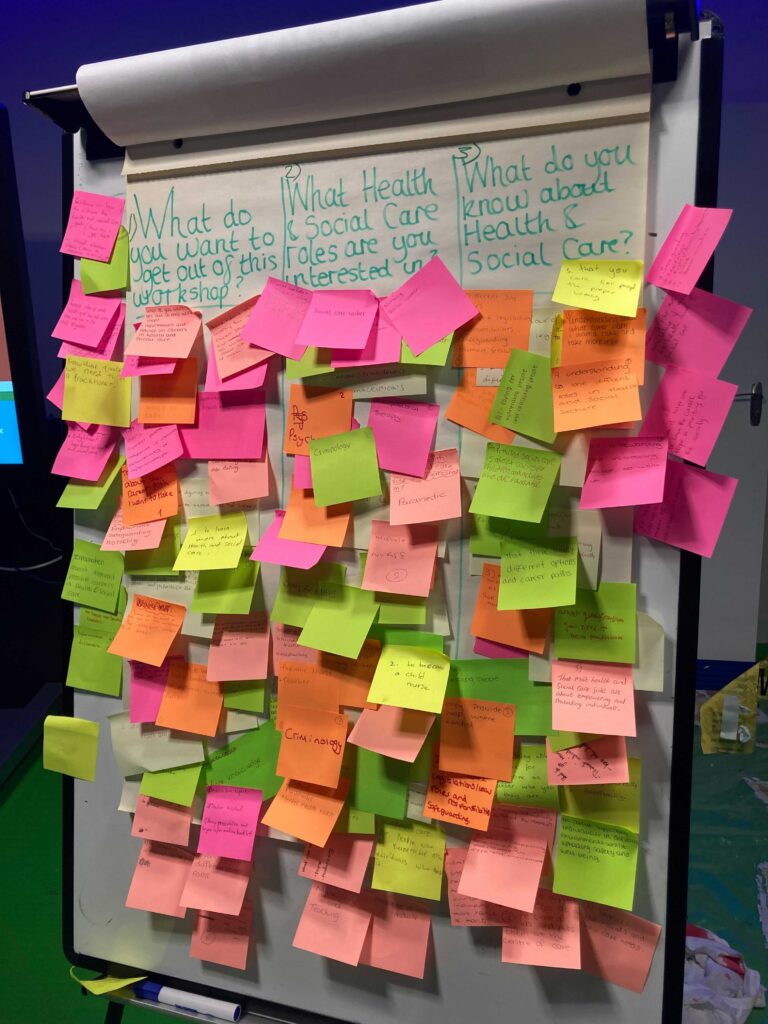
We’ve continued to work with partners across health and care, building a careers ambassador network of over 200 professionals and working with local schools and colleges to promote roles in health and care. We’ve represented partners at huge recruitment events and we’ve been using the insights from young people to help create better work experience opportunities.
Mapping the experience of people living with dementia across London
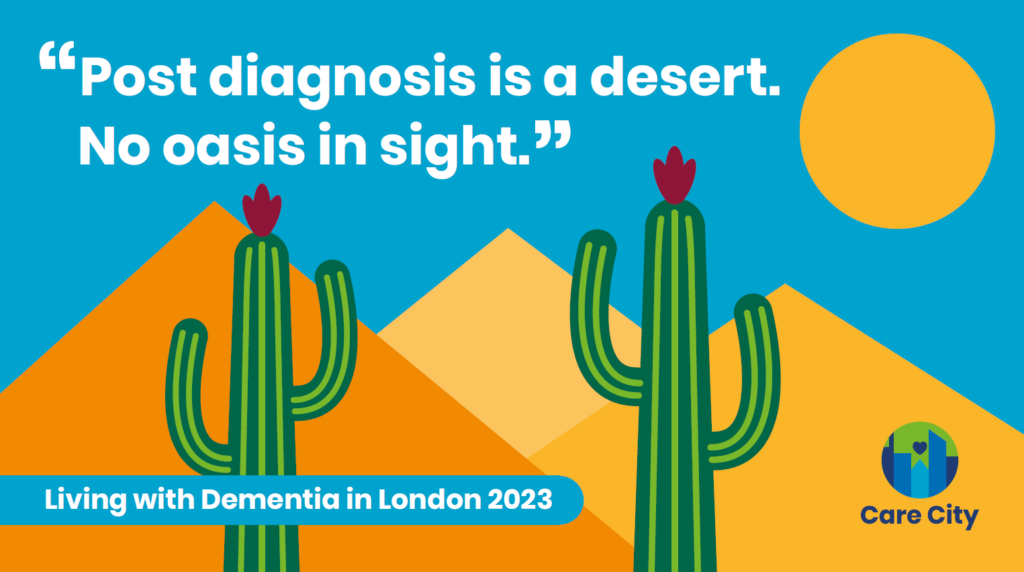
We conducted research with 150+ people living with dementia, their carers and dementia services and reported on the challenges people face in accessing support post a dementia diagnosis. Launching our report at an event with commissioners we’ve since worked to develop and implement a new national framework to make radical improvements.
Developing the Dorothy community to help people with dementia maintain independence
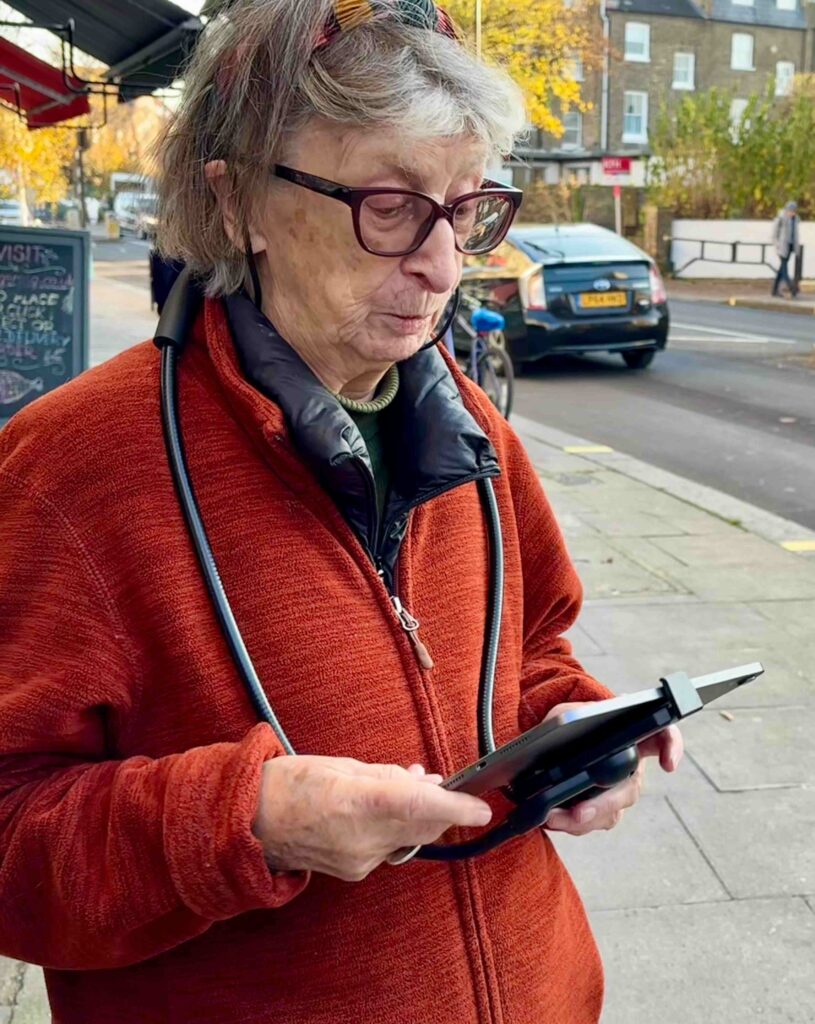
With partners from Dorothy and TPXImpact we won funding from the international longitude dementia prize to build on the Dorothy app. Exploring how augmented reality can improve wayfinding of physical environments to help people living with dementia maintain independence and get around. We’ve been testing in high streets, cafes, care homes, hospitals and museums as we look to scale this tech UK wide.
Understanding the opportunities to help care leavers into employment
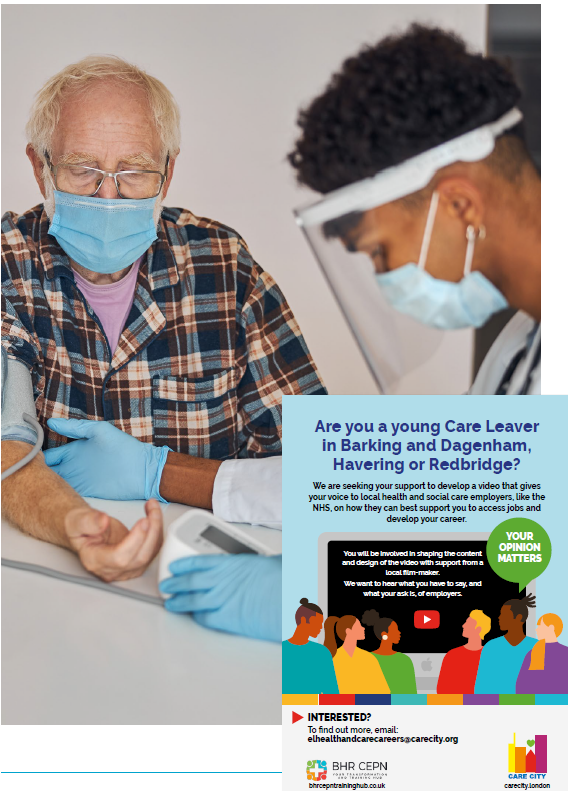
Funded by partners at BHRCEPN, we’ve been working with care leavers and employers to understand the barriers to employment opportunities and exploring ideas and concepts with them to improve these experiences.
This is directly informing our work to develop a modern work experience offer across North East London health partners.
Training domiciliary care providers to use technology to deliver enhanced care
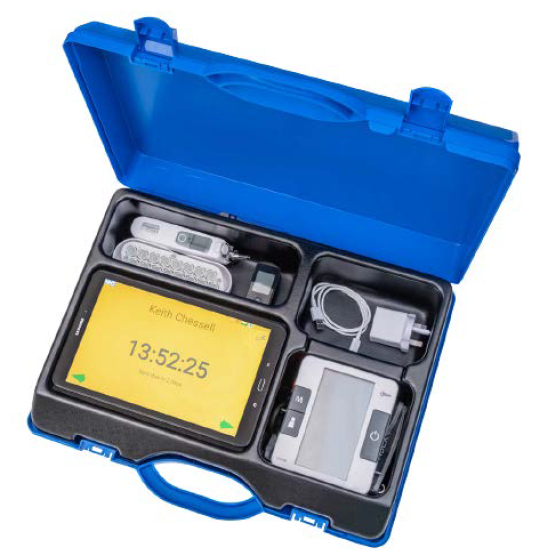
We’ve been working with Redbridge and in Devon to use the WHZAN blue box and Feebris technology, helping domiciliary care workers to use monitoring tools when they spot signs of ill health in those they care for. A new clinical pathway allows GPs to review results and intervene earlier, preventing deterioration and avoidable hospital admissions.
We are now developing a remote monitoring qualification for care staff, working with Newham College and Care Providers Voice to enhance digital skills.
Increasing the visibility and opportunities for Allied Health Professionals in social care
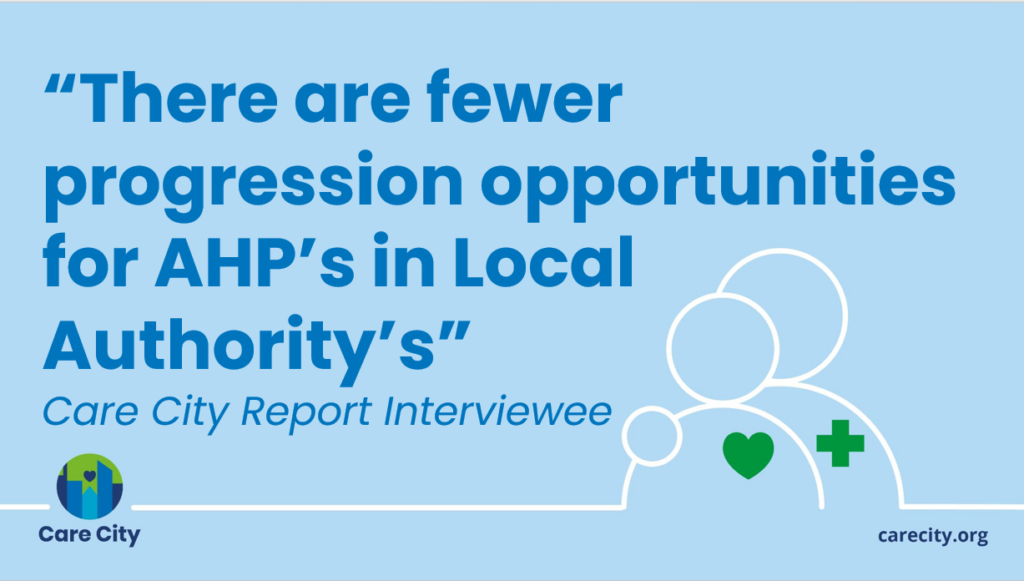
On behalf of NHSE we’ve been working with local authorities across London to better understand the provision of AHPs in the social care workforce.
Through user research and data analysis we are improving visibility in the workforce and understanding some of the opportunities to enhance the roles and skills in the sector of this vital part of the health and care workforce.
Co-designing new approaches to support young people with mental health issues
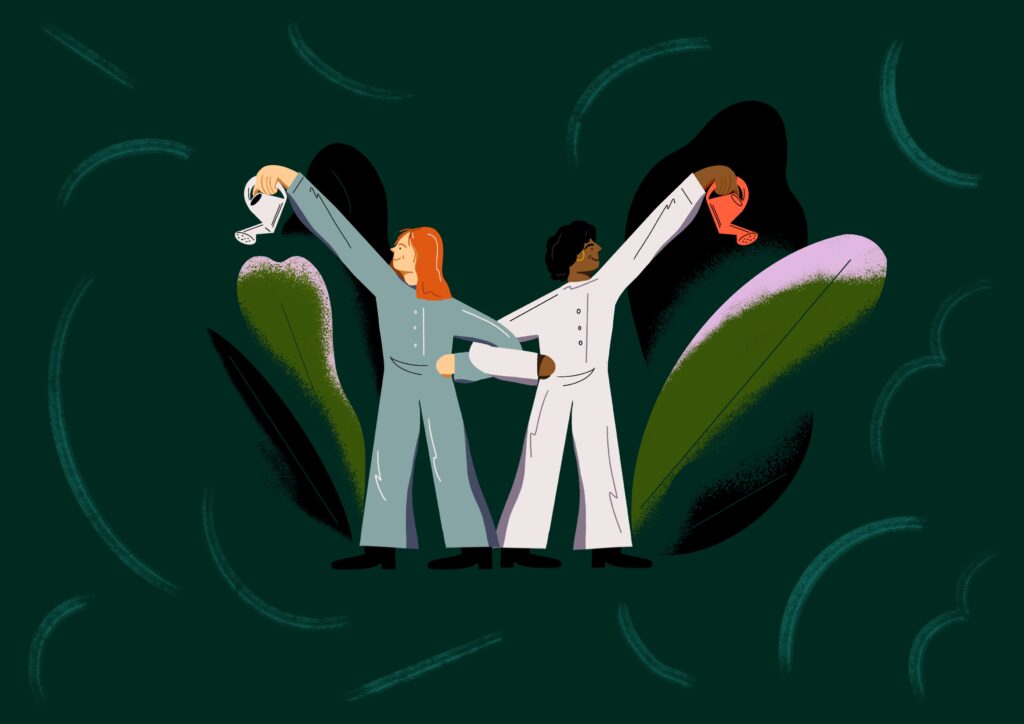
Working alongside our partners at UCLPartners, we’ve been helping deliver the Kailo programme, supporting research and codesign with young people who have experienced mental health issues in Newham.
We’ve supported young people to carry out user research, and helped facilitate a co-design process to explore and develop opportunities to improve pathways and experience. The methodology is being shared to help other places replicate the approach.
Supporting BHRUT and Queens hospital to work differently with local communities to reduce avoidable hospital admissions
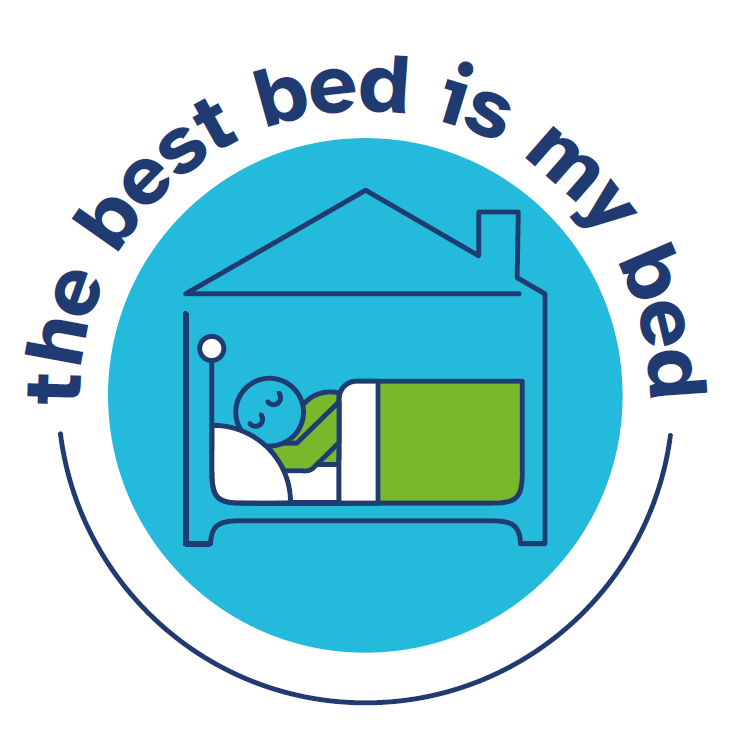
With the brilliant BHRUT team we ran the ‘Best Bed is my Bed’ event to spark new conversations and relationships with health and care partners and community organisations to encourage working together differently to reduce avoidable hospital admissions. We’re now working with patients and residents across North East London to understand their lived experiences, capturing insights and opportunities to inform and shape the new clinical strategy.
Helping local authorities to understand the benefits and implement care technology to support vulnerable residents
Working with the London Borough of Barking and Dagenham we’ve been talking to hundreds of residents about the use of care technology. Understanding how they use it and how they want to use it in the future to support better health outcomes. Insight is informing how the council will reach out to offer proactive support in the future, led by how residents want to share their data and be offered help. We’ve also been helping to understand the assistive care tech market, building data and evidence of impact and advising local councils on how to make the most of the opportunities it presents.
Developing an eLearning module for NHS Learning Hub on supporting older adults living with depression

The Care City team has helped with the development of several pieces of content including YouTube Videos and lending our voice to a podcast that is now available to listen on Spotify: Make a difference: Think depression in older people this will be shared across the NHS workforce to help share best practice.
Working with community organisations and residents to deliver new approaches to prevent people being discharged from hospital being socially isolated
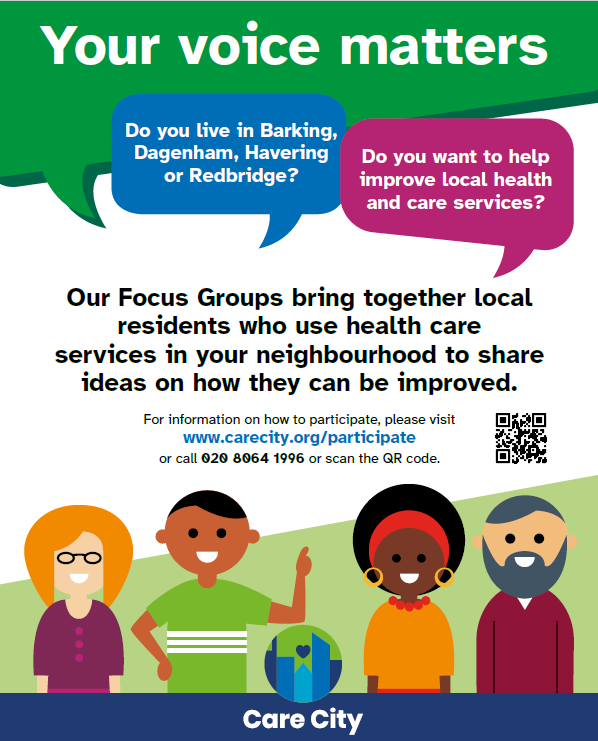
Working with BDCollective and Barking and Dagenham council, we’ve launched a new year long programme. Currently in discovery, we are understanding the challenges and opportunities by engaging local residents with lived experience of hospital discharge and isolation, and community, voluntary sector and statutory partners. Moving into delivery, next year we’ll be funding local organisations and our communities to work together to try new approaches to live alongside people, building on their hopes and aspirations to address the challenges for people that lead to isolation.
Designing new technology to help people who direct theirs or a loved one’s care and support
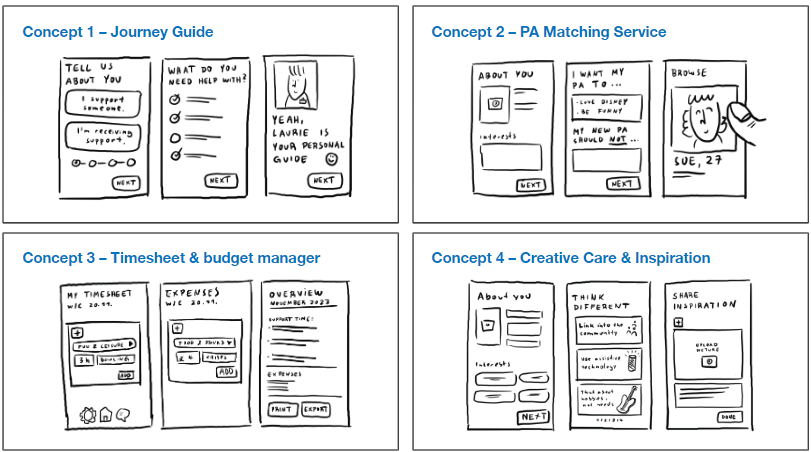
Funded by The Health Foundation Care City is working with In Control and Social Care Futures to explore how technology can help people better direct their own care and support.
We’ve been researching and testing new and existing tech concepts with people who have lived experience and local councils, to understand what technologies could help give them more agency and control. We’ve focused on relational concepts that shift the power balance to communities and individuals. We’ll be testing these in detail next year with the aim to develop and implement them.
Working with Barking and Dagenham, NEL ICB and local communities to design a new model of care campus
We’ve just started a new project with Barking and Dagenham Council and the NEL ICB to explore how an underused physical space in the area could be used differently to better support local community needs. We’ll be engaging the local neighbourhood along with bringing partners together to collaboratively experiment, prototype and design a new care campus model; led by data, local needs and priorities. All of this work is informing the broader NEL estates strategy and vision development that we are also supporting.
All of this work is made possible because of our partners’ passion and commitment to reimagine health and care. At Care City we are dedicated to demonstrating through all our work, the role that communities need to play in shaping the direction of their own care and support. We believe that the relationships between our communities and strategic partners across health and care are essential for making our places better, and fostering them is critical to unlocking better health outcomes. This lives at the heart of our innovation approach, alongside our determination to implement and share and spread what works. We’ll be building on all of this work next year and growing to new places in the UK. If you share in our vision, we’d love to hear from you and speak about how we can work together in 2024.
Have a great festive break and a very happy new year to you all.
Matt, CEO, Care City CIC

